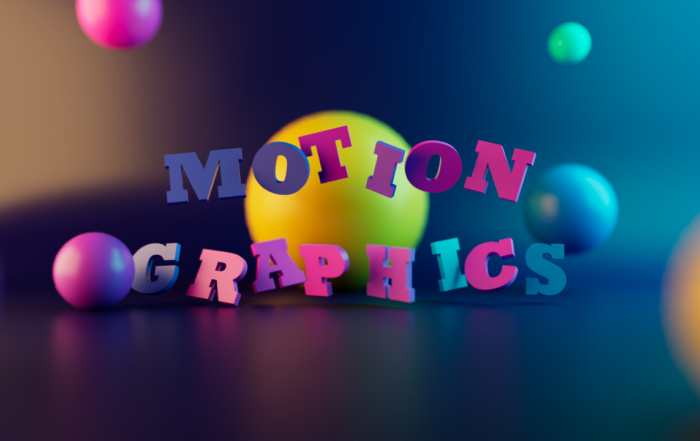In the ever-evolving world of digital marketing, brands constantly search for ways to stand out and drive conversions. One powerful trend has emerged as the favorite: video advertising. Video ads are consistently outperforming image-based ads across industries, not only in capturing attention but also in achieving higher conversion rates. But why do video ads convert faster than image ads? This blog explores the many facets of video marketing, examining the reasons behind its effectiveness, the psychology of why viewers respond to it, and actionable tips for crafting video ads that boost conversions.

Table of Contents
1. The Psychology of Video Engagement
To understand why video ads convert faster, it’s essential to consider human psychology. Videos stimulate our brains differently than still images because they involve multiple sensory inputs: sight, sound, and often movement.
A. Multisensory Stimulation
Videos are more dynamic than images, combining visuals, audio, and motion to create a rich, immersive experience. This multisensory experience holds our attention longer and fosters a stronger emotional connection with the content.
Studies show that when viewers experience sound and motion together, they are more likely to remember the content. The power of multisensory engagement makes video ads especially impactful when aiming to leave a lasting impression.
B. Increased Retention and Recall
Video ads are highly memorable, with research indicating that people retain about 95% of a message when they watch it in video format compared to only 10% when reading it in text. This is especially valuable in marketing, where brand recall can make the difference between a conversion and a lost opportunity.
Videos also evoke emotions more effectively than images alone. They allow marketers to create immersive narratives and convey stories that resonate, sparking curiosity, excitement, or empathy that stick with viewers.
C. The Power of Storytelling in Video Ads
Storytelling is a compelling marketing strategy because it taps into our natural love for narratives. Videos provide a platform for storytelling that is hard to replicate with a static image.
Through short but powerful stories, brands can connect with viewers, creating a bond that moves them to take action, whether it’s making a purchase, signing up, or sharing the video.
2. Higher Engagement Rates and Longer Viewing Time
Videos consistently outperform images when it comes to engagement rates. According to research, video content on social media platforms garners up to 1200% more shares than text and images combined. This high level of engagement is key to driving conversions.
A. Captivating Attention Quickly
People are naturally drawn to movement, and video ads capitalize on this by capturing attention within seconds. The first few seconds of a video ad are crucial, as they can hook viewers and compel them to watch further.
Platforms like Facebook and Instagram have auto-play features, which make videos instantly engaging as they begin playing as users scroll. This feature alone significantly increases the chance that viewers will pause and watch, compared to scrolling past a still image.
B. Longer Exposure Time Leads to Higher Conversions
Videos encourage users to spend more time engaging with content. This longer exposure time helps reinforce the brand message, increasing the likelihood that viewers will remember and act on it.
As people watch longer, they absorb more information about the product or service, which increases their trust and willingness to make a purchase.
C. Interactive Features Enhance Engagement
Many platforms now offer interactive features, like shoppable video ads and “swipe up” options, that allow viewers to act immediately. Videos make it easier for users to interact without leaving the platform, streamlining the path from interest to conversion.
3. Video Ads Simplify Complex Information
Sometimes, explaining a product or service requires more than just an image or a simple caption. Videos can efficiently communicate complex messages by breaking them down visually and narratively.
A. Demonstrating Product Benefits Clearly
Videos provide the opportunity to show products in action, showcasing features and benefits in a way that static images can’t. A well-crafted video can guide viewers through a product’s key points, answering potential questions and highlighting the value in seconds.
For example, a 30-second video ad for a skincare product can demonstrate the product’s effects in real-time, making it more persuasive than an image or text-based explanation.
B. Using Visual Storytelling for Better Understanding
Animated or explainer videos are great for conveying complex ideas, step-by-step processes, or product demos. Visual storytelling aids comprehension and can quickly convey why a product or service is useful.
By simplifying complex concepts, videos ensure viewers feel informed, reducing hesitation and making them more comfortable proceeding to the next step in the conversion process.
4. Emotional Connection and Trust-Building
A unique benefit of video ads is their ability to foster an emotional connection with viewers. Emotional appeals can drive conversions by creating a bond between the brand and the audience.
A. Building Authenticity and Trust
Videos allow for a more authentic and personal touch. For example, a founder explaining the company’s mission or a satisfied customer sharing their experience adds credibility and trust.
Seeing a real person, or even a relatable animated character, builds trust faster than an image. This authenticity can be especially effective in fostering loyalty and encouraging new customers to engage with the brand.
B. Evoking Emotions that Drive Action
Video ads can use music, voiceovers, and imagery to evoke emotions that motivate action. A product video for a travel company, for example, might evoke a sense of adventure and freedom that encourages viewers to book a trip.
Emotions can make the viewer feel a personal connection, which is a powerful motivator for conversions. When people feel something, they’re more likely to remember the brand and respond positively.
5. Better Performance on Social Media and SEO
Video ads are often prioritized by algorithms on platforms like Facebook, Instagram, and Google, giving them a distinct advantage over image ads.
A. Higher Reach and Visibility on Social Media
Social media platforms are increasingly prioritizing video content. Video posts receive higher engagement rates, more shares, and are often promoted in user feeds.
Algorithms favor content that keeps users on the platform longer, and videos do just that. This increased visibility means more people will see and interact with the ad, leading to more conversions.
B. Boosting SEO for Better Discoverability
Google and other search engines prioritize video content, particularly when it’s optimized with relevant keywords, descriptions, and tags. This can improve a brand’s visibility on search engines and drive organic traffic.
Embedding videos on a website can also boost SEO, keeping users on the page longer and signaling to search engines that the site offers valuable content.
6. Creating High-Converting Video Ads: Best Practices
To take full advantage of video ads’ conversion power, it’s essential to follow best practices to maximize engagement and drive action.
A. Grab Attention Early
The first few seconds are crucial in a video ad. Start with a strong visual or compelling hook to catch the viewer’s eye before they have the chance to scroll past.
Lead with the problem your product solves, a unique selling point, or an intriguing question.
B. Keep It Short and Focused
Short videos tend to perform better for ads, especially on platforms like Instagram and Facebook where users have shorter attention spans.
Aim for 15 to 30 seconds for most ads. However, longer formats like explainer videos can work well if the product is complex or requires a demo.
C. Include a Clear Call-to-Action (CTA)
Make it easy for viewers to know what to do next. Whether it’s “Learn More,” “Shop Now,” or “Sign Up Today,” ensure there’s a clear and actionable CTA.
Placing the CTA in the middle or end of the video is generally effective, depending on the content flow.
D. Optimize for Mobile Viewing
A large portion of video ad viewers will watch on mobile devices, so design videos to be mobile-friendly. Vertical and square video formats often work best for mobile platforms like Instagram Stories and Facebook.
Ensure text is legible on small screens and that the visuals remain clear and impactful even on mobile.
E. Test and Refine Based on Data
Different audiences respond to different styles of video ads. Test various formats, lengths, and messaging to identify what resonates best with your target audience.
Use metrics like engagement rate, view time, and conversion rate to measure effectiveness and refine your strategy accordingly.
Conclusion
The evidence is clear: video ads are a powerhouse for driving conversions faster than image ads. From engaging storytelling and emotional connection to high social media visibility and SEO benefits, videos provide a multidimensional approach to capturing attention and compelling viewers to act. By embracing video ads and following best practices, brands can enhance their marketing effectiveness, foster stronger customer connections, and ultimately increase conversions in today’s competitive digital landscape.
Incorporate video ads thoughtfully, with attention to format, length, and audience preferences, and watch as they transform your conversion rates. As the saying goes, a picture is worth a thousand words—but a video could be worth a thousand conversions.
Recent Posts
An Ultimate Guide to Instagram Marketing
This Ultimate Guide to Instagram marketing will explore the use of the Instagram platform[...]
A Definitive Guide to Free Marketing
Zero-budget marketing, also known as zero-dollar marketing or zero-cost marketing, refers to the practice[...]
A Guide to Motion Graphic Video Advertising
Motion graphic video advertising is a powerful and engaging way to communicate messages, promote[...]



